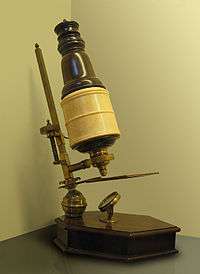Whipple Museum of the History of Science

Whipple Museum Collection.

Whipple Museum Collection.
The Whipple Museum of the History of Science is a Museum attached to the University of Cambridge, United Kingdom, which houses an extensive collection of scientific instruments, apparatus, models, pictures, prints, photographs, books and other material related to the history of science. It is located in the former Perse School on Free School Lane, and was founded in 1944, when Robert Whipple presented his collection of scientific instruments to the University of Cambridge. The Museum's collection is 'designated' by the Museums, Libraries and Archives Council (MLA) as being of "national and international importance".[1]
The Museum is one of eight museums in the University of Cambridge Museums consortium.[2]
Department of History and Philosophy of Science
The Museum forms part of the Department of History and Philosophy of Science, University of Cambridge. The Department includes a working library with a large collection of early scientific books, some of which were given by Robert Whipple. The Museum plays an important part in the Department's teaching and research.
Collections
The museum's holdings are particularly strong in material dating from the 17th to the 19th centuries, especially objects produced by English instrument makers, although the collection contains objects dating from the medieval period to the present day. Instruments of astronomy, navigation, surveying, drawing and calculating are well represented, as are sundials, mathematical instruments and early electrical apparatus.
Since Robert Whipple's initial gift of the collection, the Museum has come to house many instruments formerly used in the Colleges and Departments of the University of Cambridge.
Opening hours
The museum is open to the public on weekday afternoons from 12.30pm to 4.30pm and admission is free.
See also
- Jim Bennett, a previous curator, moved to the Museum of the History of Science, Oxford.
- History of science
References
External links
- The Whipple Museum's website
- Department of History and Philosophy of Science information
- University of Cambridge libraries and museums information
